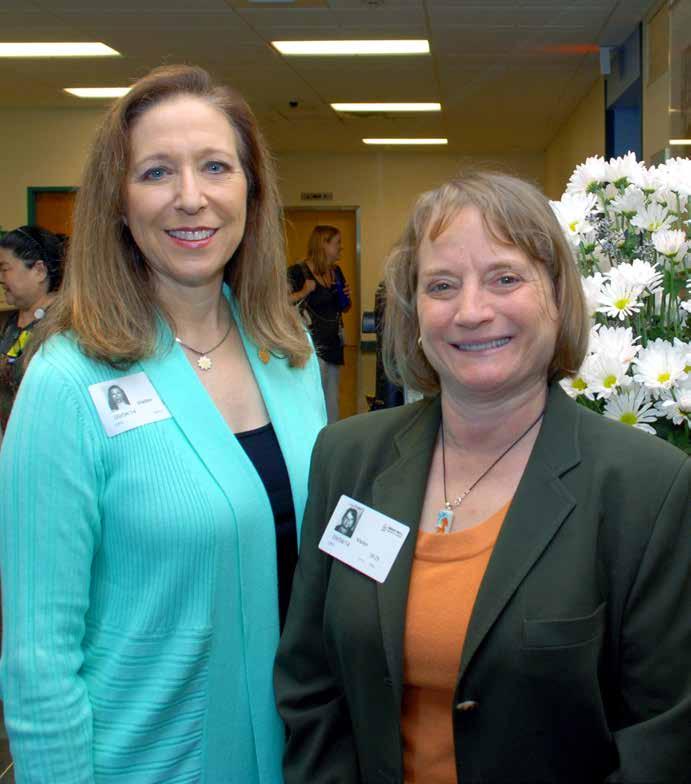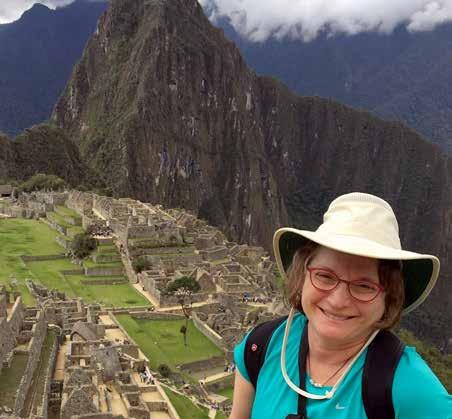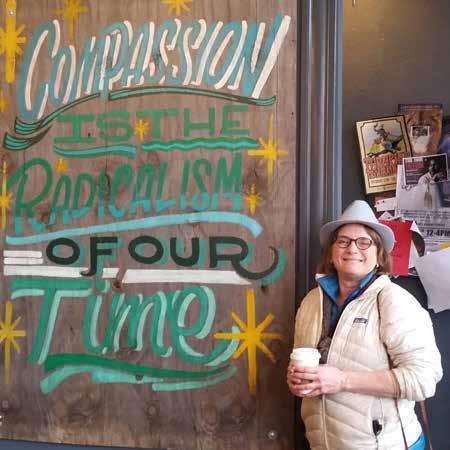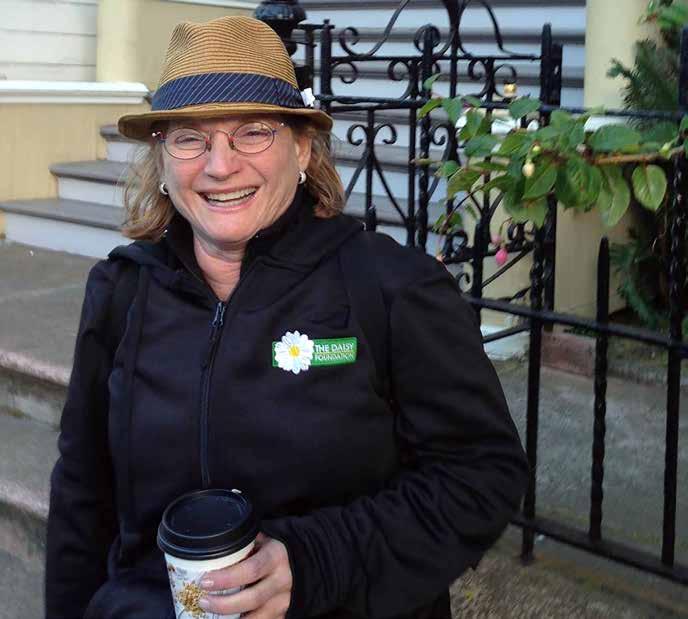
5 minute read
A career in compassion
A career in compassion
How Cindy Lefton, RN, Ph.D., brings nursing and organizational psychology together to create a more caring healthcare system
Jessica Lefton

Everyone knows there are only 24 hours in a day, but after reading the resume of Cindy Lefton, RN, Ph.D., it is easy to assume she has found a loophole. On an average day, you might find Cindy in her office at Psychological Associates, where she works as VP of Organizational Consulting. But you are just as likely to find her working at the Barnes-Jewish Hospital Emergency Department, where she serves as a Waiting Room Nurse. And don’t forget her roles as an associate editor for the Journal of Emergency Nursing, or pro bono Patient Experience Director at The DAISY Foundation™.
Cindy is presented with the Friend of DAISY Award — a rare honor given only a handful of times over the past 20 years

All in all, she is one busy lady. If Cindy’s list of current jobs makes your head spin, she can even help you with that. She has spent close to four decades working in healthcare, a path that started as a paramedic for the St. Louis Fire Department EMS Bureau in 1978. The progression from paramedic to nursing was natural—and the role suits her.
“In nursing, you have the opportunity to meld cutting edge science with genuine kindness and compassion to make a difference in someone’s life,” she says. “That’s what drew me to the field, and what keeps me here after all these years.”
Perhaps a less natural progression, at least to the outside observer, was Cindy’s decision to pursue both of her master’s degrees (in human resource management and science research) and her doctorate in psychology.
— Cindy Lefton, RN, Ph.D.
The daughter of a renowned organizational psychologist, Cindy recognized there were issues within the healthcare system that needed to be addressed. The work of caring for others is exhausting, and medical professionals are often plagued by burnout and “compassion fatigue” as a result. “When I went back to school, I was completely focused on positively impacting the culture in healthcare,” Cindy says.
Once her doctorate was firmly in hand, Cindy set out to work with healthcare organizations and professionals to make meaningful culture change through her new role as a consultant at Psychological Associates. It was then that Cindy met Bonnie Barnes. And the rest, as they say, is history.
The DAISY Connection When Bonnie and Mark Barnes’ son, Patrick, was diagnosed with a rare auto-immune disease, they were awed by the compassion and kindness of the nurses who administered his care. When Patrick passed away, the Bonnie and Mark knew that the best way to honor his memory was to find a way to say “thank you”—not just to the nurses who cared for Patrick, but to all of the nurses who provide extraordinary comfort and attention to patients and families.
Thus, The DAISY Award ® For Extraordinary Nurses was born.
By 2008, Bonnie and Mark had been at the helm of the DAISY Foundation for nearly a decade. The DAISY Award was a success—nurses cherished the recognition, hundreds of healthcare facilities across the country adopted the award, and it was clear that something special was happening.
But it was hard to define what that “something” was. Just as Bonnie was wondering how to gather evidence to support and define the effectiveness of The DAISY Award, she met Cindy. They hit it off right away. Cindy was immedi- ately drawn to the mission of the DAISY Foundation. “DAISY nominations—not even the award, but the nominations themselves—are a very strong form of positive feedback, which is a huge motivator,” Cindy says.


Before long, Cindy had vol- unteered to lead the organiza- tion’s research efforts. Over the next several months, she and her team at Psychological Associates reviewed, coded and analyzed more than 2,300 DAISY Award nominations—each one a story of extraordinary compassionate care by nurses across the country. The review process was detailed and intense. Additionally, Cindy inter- viewed Chief Nursing Officers and DAISY recipients to understand the impact this recognition has on their organizations and nurses.
What came out of those months and months of interviews and data analysis is a language for communi- cating the data-driven value of mean- ingful recognition through programs like The DAISY Award. When talking about their partnership today, Bonnie says that Cindy has created a bridge for us to the profession of nursing, giving DAISY a voice that is relevant in a powerful way.

A more compassionate future Today, The DAISY Award is not only available at more than 3,900 healthcare facilities and schools of nursing in the United States, but also across the globe. For 20 years, The DAISY Foundation has been shining the light on all the great work nurses do every day.
Thanks to their collaboration with Cindy and subsequent studies, it is now clear that meaningful recognition, when delivered through programs such as The DAISY Award, not only improve nurse engagement, but also enhance a sense of trust within a nursing unit. And nurses who have been nominated for the award report lower levels of burnout and secondary traumatic stress and higher levels of compassion satisfaction.
It is through this work that Cindy is finally seeing the sort of cultural change she had always hoped for in healthcare. Today, there is a greater focus on meaningful recognition—on reinforcing all the right going on in healthcare and elevating outcomes associated with compassion. Not only does this help to create healthy work environments, it also positively impacts patient experiences.
“The DAISY shows us that those human connections benefit the patient and the family, but they’re also great for the nurse,” Cindy says. “That’s because when people know they made a difference, it helps them feel like they matter and they have a purpose.”
For Cindy, that purpose is clear. Whether it’s in the emergency room or the board room, she wants to elevate the power of gratitude and meaningful recognition.

